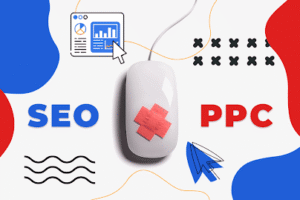In today’s digital-first world, mobile and web applications have become indispensable for businesses of all sizes. However, building an app from scratch requires considerable time, money, and technical expertise—resources many startups and agencies don’t have in abundance. This is where white label app development comes in.
White label app development allows businesses to rebrand and resell pre-built apps as their own. This model opens up a world of opportunities for agencies and startups to launch products faster, reduce development costs, and expand service offerings without the challenges of in-house development. This article will explore the top advantages of white label app development and how it empowers emerging businesses to stay competitive and agile.
What is White Label App Development?
White label app development is acquiring a generic, ready-made application built by a third-party provider, which can then be customized and branded as your product. These apps come with core functionalities pre-developed, enabling businesses to modify elements such as logos, themes, color schemes, and content while maintaining full ownership of the user experience.
Instead of reinventing the wheel, agencies and startups can white label an existing solution and quickly roll it out to clients or users, reducing time-to-market and development risk significantly.
1. Faster Time-to-Market
In industries where speed is competitive, deploying solutions rapidly is crucial. Depending on complexity, traditional app development can take anywhere from three months to a year. White label apps, on the other hand, are already built and tested. All that’s required is customization and deployment.
For startups, this means the ability to validate their MVP (Minimum Viable Product) in weeks rather than months. For agencies, it means delivering timely results to clients without delays.
Example:
A marketing agency specializing in real estate could offer custom property listing apps to clients within days, enhancing client satisfaction and capturing revenue opportunities more quickly.
2. Cost-Effective Development
App development can cost anywhere from $30,000 to $150,000 for a moderately complex mobile application, with more sophisticated apps costing even more. This budget isn’t feasible for most startups or smaller agencies.
The core development work has already been completed with a white label solution, drastically reducing the cost. Instead of hiring a team of designers, developers, testers, and project managers, you pay a one-time licensing fee or subscription to use and rebrand the app.
Key Financial Advantages:
-
No need for full-time developers
-
Minimal QA/testing investment
-
Reduced project management effort
-
No long-term maintenance expenses if hosted by the provider
3. Focus on Core Competencies
Agencies and startups often excel at branding, customer experience, marketing, and business strategy—but not necessarily app development. With white label solutions, these businesses can focus on what they do best while leaving the heavy technical lifting to the software experts.
This allows creative teams to deliver polished, feature-rich apps without getting bogged down in code, bugs, or back-end infrastructure.
4. Easy Customization and Branding
The term “white label” means that the product can be rebranded with your logo, color scheme, text, and visuals. Most white label platforms offer intuitive customization tools or admin panels, allowing agencies and startups to tweak the interface and user experience without writing code.
Customizations May Include:
-
Company name and logo
-
App color palette and theme
-
Menu structure and navigation
-
Content management (text, images, videos)
-
Integration with third-party APIs or tools
This allows businesses to maintain a unique brand identity, even when using a shared platform.
5. Scalable and Reliable Infrastructure
White label app providers often invest heavily in scalable infrastructure, ensuring their platforms are secure, fast, and capable of handling growth. Building such a scalable architecture from scratch would be extremely time-consuming and costly for a startup.
By using a white label solution, startups and agencies gain access to enterprise-grade infrastructure and uptime guarantees, without the need to manage servers or hire DevOps professionals.
6. Reduced Technical Barriers
Many agencies and non-technical founders lack the in-house expertise to manage full-cycle app development. With white label development, there’s no need to master complex coding languages or manage a full product roadmap.
The result? Regardless of their technical background, entrepreneurs and service providers can confidently enter the app market.
7. Monetization Opportunities
White label apps can open the door to new streams of recurring revenue. Agencies, for example, can resell the same white label app to multiple clients, each with their branding and content. Similarly, startups can offer subscription-based services or in-app purchases through a white-labeled platform.
This model provides long-term financial sustainability with minimal maintenance overhead.
Popular Monetization Models:
-
Client subscription packages
-
One-time setup fees
-
Feature-based pricing tiers
-
Monthly app maintenance and support plans
8. Proven Code, Fewer Bugs
White label apps are typically built to be used across industries and have been tested repeatedly for performance and reliability. This results in fewer bugs, less downtime, and a smoother user experience, unlike newly developed apps that may go through long debugging phases.
As a result, customer support needs are lower, and user satisfaction is higher from the start.
9. Great for MVPs and Market Testing
For startups testing a new idea, white label solutions provide an excellent way to enter the market quickly with a working MVP. Instead of spending months and money on product development, founders can launch a basic app version, validate with real users, and refine the product based on feedback.
Once traction is proven, they can continue scaling the white label app or transition to a custom-built solution.
10. Ongoing Support and Maintenance
Many white label app providers include continuous updates, bug fixes, and security patches in their licensing agreements. This removes a huge burden from the business owner’s shoulders and ensures that the app stays compatible with new operating systems and devices.
This is particularly valuable for startups that don’t have a technical team in place for long-term maintenance.
Conclusion: White Label is a Smart Choice for Modern Businesses
White label app development offers a strategic pathway for agencies and startups to build branded, scalable digital products without the traditional complexity or costs of custom development. With benefits including faster time-to-market, cost savings, scalability, and low technical requirements, white label apps empower emerging businesses to compete at enterprise levels—without the enterprise budget.
Whether you’re looking to offer new services to your clients or validate a digital product idea quickly, white label solutions provide the tools, infrastructure, and flexibility to help you grow confidently and sustainably in the app economy.


